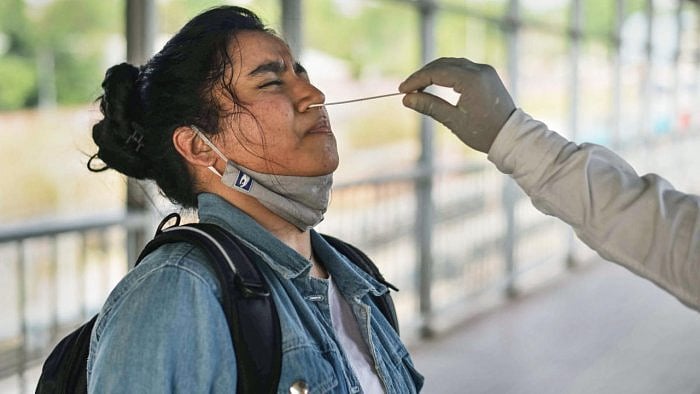
The Indian government's Covid restrictions did not yield as much results as the restrictions in many developed countries, according to a recent study.
Prof V Sridhar of IIIT Bangalore presented the findings at the conference on 'Covid-19 and Cities' at the Institute for Social and Economic Change here on Thursday.
The study looked at how measures such as lockdowns and movement restrictions affected the reproduction number (R) for Covid-19 in different countries. R is the number of people that a single individual would infect in a population.
In developing countries like India, restrictions did reduce the R value, but not as much as the average in developed countries.
The study also found that the impact of restrictions in India was lower in the second wave compared to first.
"In the second wave, the effect of government response on R value was almost half compared to that found in the first wave. The reason could be that the Delta variant in the second wave was highly virulent and infectious," Prof Sridhar told DH.
In both the waves, the impact of a restriction was found on the 14th day of its implementation.
"For example, if school closure was implemented, it would take 14 days before the R value reduced," Prof Sridhar said. Many factors including urbanisation and literacy levels affect the change in R value.
Another study presented by Prof Kala S Sridhar of ISEC showed the impact of lockdowns on slum dwellers and small businesses in Bengaluru.
Slum dwellers' income
Data collected from 100 slum dwellers showed that their average monthly income had reduced to Rs 12,106 post the 2021 lockdown, compared to the pre-Covid income of Rs 14,919. While only 54% of them reported having food consistently during the first lockdown of 2020, 98% had adequate food in the 2021 lockdown.
Of the 14 small businesses surveyed, only four had paid their employees - who were from vulnerable sections - during the lockdown.
Shanghai better placed
Of the 12 RWAs surveyed, only one-third had coordinated directly with the local government for Covid management. The study, which compares Bengaluru with Shanghai, concluded that Bengaluru's governance model for Covid was only partially effective.
IAS officer Dr R Vishal, zonal coordinator for Covid management in RR Nagar, talked about the learnings from managing the first and second waves.
Ward committees
"The question was whether ward committees would help in pandemic management. Though we had enough personnel at the ward level, the funds and processes (like procurement) were more centralised at the BBMP or state level. So it was challenging to have wards as the final activity zone," he told DH.
"Whether complete decentralisation is possible in a future pandemic is a tricky question. Some activities can be decentralised, but some others like massive procurements make better sense when centralised."
